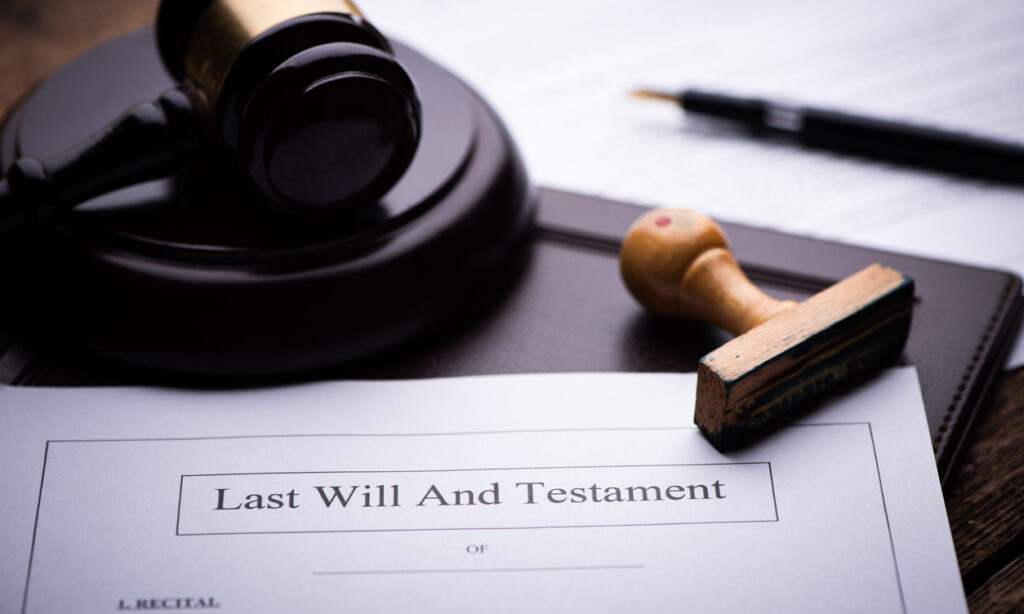Understanding the presumptions of due execution and revocation in Packer v Packer
The recent case of Packer v Packer [2025] EWHC 461 Ch touched upon two presumptions, which can often be overlooked in disputed will cases.
The presumption of due execution
This applies when the validity of a will is in question, but ‘on its face’ the will is validly executed i.e. signed and dated. For example, there may be an attestation clause, coupled with the signatures of two independent witnesses. The court presumes a will is valid unless there is strong evidence to the contrary. The burden to rebut the presumption of due execution is on the party challenging the will and the ‘strongest evidence possible’ is usually required. If a party challenging the will is successful, the burden of proof shifts back to the party trying to uphold the will as valid.
The presumption of revocation
Secondly, the presumption of revocation. This applies when a will was last known to be in the testator’s possession but cannot be found after their death. There is a rebuttable presumption that the testator destroyed the will – their intention being to revoke it, so that the will is no longer valid. The estate would then pass either under the rules of intestacy, or under an earlier Will.
In recent years the presumption of revocation has fallen out of favour and the court has not been inclined to uphold the presumption, even where there is quite strong evidence.
In the case of Cooper v Chapman (2022), an original will could not be found, nor a signed copy, and the only evidence of the contents of the will was a draft on the deceased’s computer. However, on the basis that both witnesses could remember signing the will, the court found that the presumption did not apply and upheld the will.
Background to the case of Packer v Packer
In the case of Packer v Packer, this involved a dispute between the deceased’s wife and sister. The wife was unaware that her husband had allegedly prepared a will and believed that he had died intestate. The sister claimed that she had helped the deceased to prepare a will, where she benefitted, but that she had advised him to take the will away to be independently witnessed. Despite thorough searches of the deceased’s home, no executed will was found. Only a draft copy was provided by his sister, which she tried to admit to probate, as the last valid will of the deceased.
Whilst an executed copy of the will could not be found, the court still found it necessary to consider the presumption of due execution, thereby extending its application. Generally, there can be no presumption of due execution, where there is no will. However, in Packer, the court considered that the presumption of due execution may still apply in cases where an intention to duly execute a will can be proven. There must also be evidence to support that the deceased actually did carry out the execution – despite the will now being lost. This would therefore turn on the evidence of the attesting witnesses.
The court in Packer found that the will had not been duly executed. There was insufficient evidence from the witnesses. Therefore, the deceased’s sister could not rely on the presumption and the will was deemed invalid.
Despite this, the court went on to consider that if the presumption of due execution applied, whether the presumption of revocation could have been rebutted by the sister.
What was the outcome
It was decided that the presumption of revocation would have applied in Packer and could not be rebutted – even though the deceased’s wife, who was responsible for finding the will, was also the person to benefit from the will being deemed invalid and/or revoked. The court concluded that even if the deceased’s sister had helped him to prepare a will, it was most likely that the deceased had decided not to execute the will and that he had instead, destroyed it.
Some of the key considerations, which helped the Court deceiver this case include:
- The fact that the deceased was reluctant to make a will in the first instance – it appeared as though he wished to die intestate.
- That the deceased appeared to keep other important documents safe – so would most likely take the same approach with a will that he intended to take effect.
- The inability to locate a will, despite a thorough search of the deceased’s home by his wife.
- The inability to locate any witnesses to the alleged executed will.
- The Judges particular findings on the sister’s character.
- The differences between the sister’s pleaded case versus her case at trial.
- Inconsistent witness evidence in support of the Deceased’s sister’s case.
What does this mean for charities?
Packer is the first successful application of the presumption of revocation in over a decade. Therefore, when bringing or defending claims, charities should be aware of these presumptions and consider if they can be deployed. However, it is important to remember that presumptions are just that, and they can be rebutted. What really counts are the facts and the evidence!
If have any queries about a possible will challenge, then our dedicated charity team is here to help.





